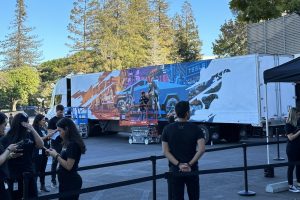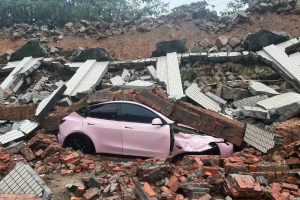The National Highway Traffic Safety Administration (NHTSA) has effectively rejected a petition that called for an investigation into Tesla vehicle fires and how they may be related to its over-the-air software updates. According to the NHTSA, it is unlikely that a probe would find a safety defect in Tesla’s vehicles.
The petition, which was filed back in 2019, alleged that Tesla’s over-the-air software updates ended up cutting battery range. The petition also claimed that the strategy was a response to battery fires across the globe. The NHTSA noted in documents posted in the Federal Register that there were fires in China after Teslas were charged at Superchargers.
No such incidents were identified in the United States, however. The agency also stated that three of the non-crash fires outside of China cited in the 2019 petition actually did not start in the battery, nor were they related to fast charging. Two of the incidents listed in the petition were not in the United States, either.
Ultimately, the NHTSA concluded that it would not be opening a formal investigation into the fires and Tesla’s over-the-air software updates. Considering the available data, it could be noted that noncrash battery fires in Teslas are actually rare events.
“The available data indicate that noncrash battery fires in Tesla vehicles are rare events. It is unlikely that an order concerning the notification and remedy of a safety-related defect would be issued due to any investigation opened as a result of granting this petition,” the agency noted.
Elaborating further, the NHTSA stated that it looked into data from the 2019 petition and from Tesla itself. It also examined field data from vehicle fires that were not caused by a crash. The 2019 petition covered about 255,000 Tesla Model S and Model X that from the 2012 to 2019 model years.
“NHTSA is authorized to issue an order requiring notification and remedy of a defect if the Agency’s investigation shows a defect in the design, construction, or performance of a motor vehicle that presents an unreasonable risk to safety. Given the absence of any incidents in the United States related to fast charging, and the absence of any such incidents globally since May 2019, it is unlikely that an order concerning the notification and remedy of a safety-related defect would be issued due to any investigation opened as a result of granting this petition. Therefore, upon full consideration of the information presented in the petition, and the potential risks to safety, the petition is denied,” the NHTSA wrote on its ODI resume.





